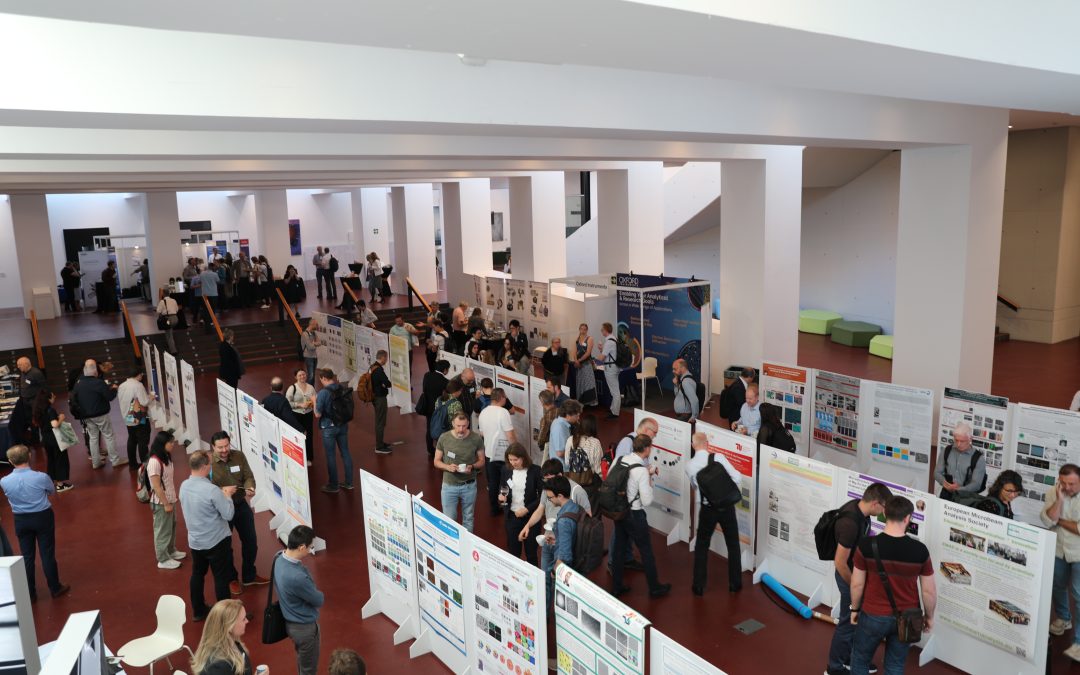From May 10 to 15, 2025, the TecnoCampus Congress Centre was the venue for the 18th European Workshop on Modern Developments and Applications in Microbeam Analysis (EMAS 2025), the leading European conference in the field of microanalysis techniques for materials. Organized by the European Microbeam Analysis Society (EMAS) and the University of Barcelona, the event brought together 142 top-level experts and researchers from 20 countries across Europe, America, Asia, and Oceania.
The main objective of EMAS 2025 was to share the latest advances in microanalysis techniques for materials, as well as to promote the exchange of knowledge and experiences among professionals from the academic, industrial, and technological sectors. Throughout the week, the programme included specialized courses, scientific sessions, round tables, poster sessions, and an exhibition area featuring scientific instrumentation companies.
Among the topics addressed were electron probe microanalysis (EPMA) and electron backscatter diffraction (EBSD), the use of reference materials and quality control, as well as applications in diverse fields such as Earth sciences, materials science, microelectronics, heritage conservation, archaeology, planetary sciences, and nanoscience.
International participation was particularly noteworthy, with delegations from Germany (32 participants), France (21), the United Kingdom (13), Spain (12), Japan (11), as well as Switzerland, the Netherlands, Poland, the United States, Italy, Finland, Norway, Austria, South Korea, Australia, Canada, New Zealand, Sweden, Slovenia, and the Czech Republic.
One of the central pillars of the conference was the promotion of emerging talent. The programme included a dedicated session for Early Career Scientists and several awards to recognize the best scientific contributions, both oral and poster presentations. The traditional gala dinner and awards ceremony also took place in the iconic setting of Masia Mas Coll in Alella.
The celebration of EMAS 2025 at the TecnoCampus Congress Centre highlighted Mataró’s capacity to host high-level scientific events. With a unique ecosystem that brings together university, business, and innovation, TecnoCampus has established itself as a leading hub in Southern Europe for knowledge transfer and the promotion of applied research.

